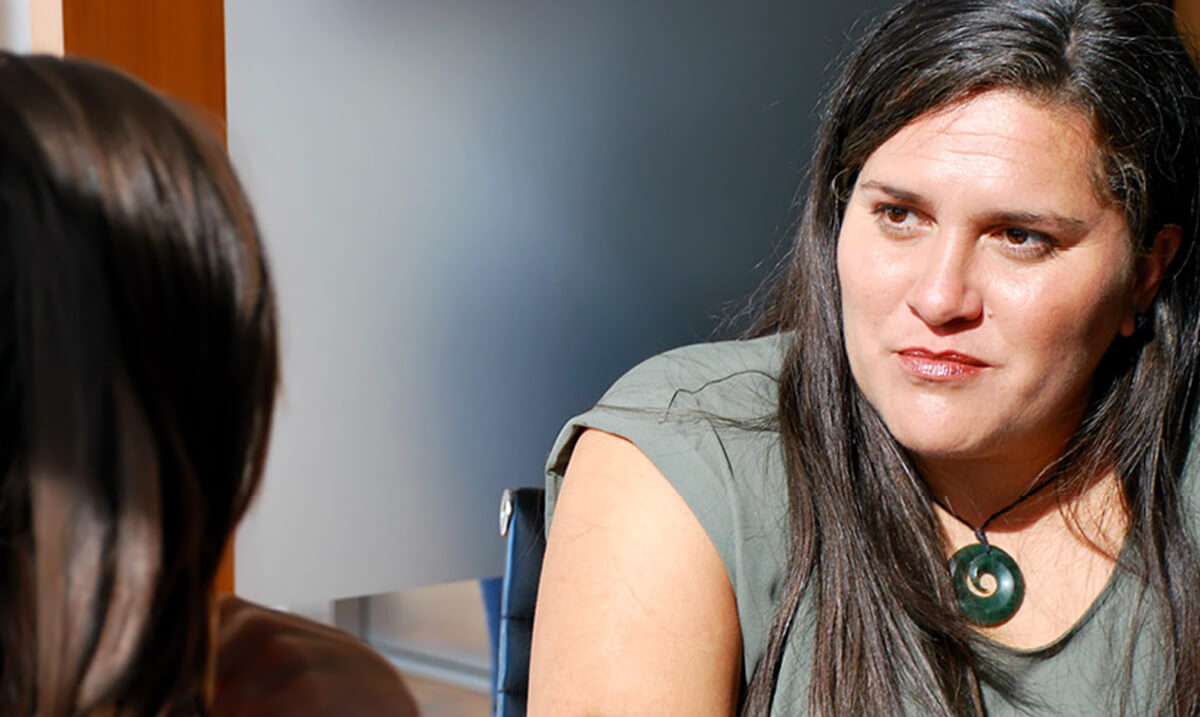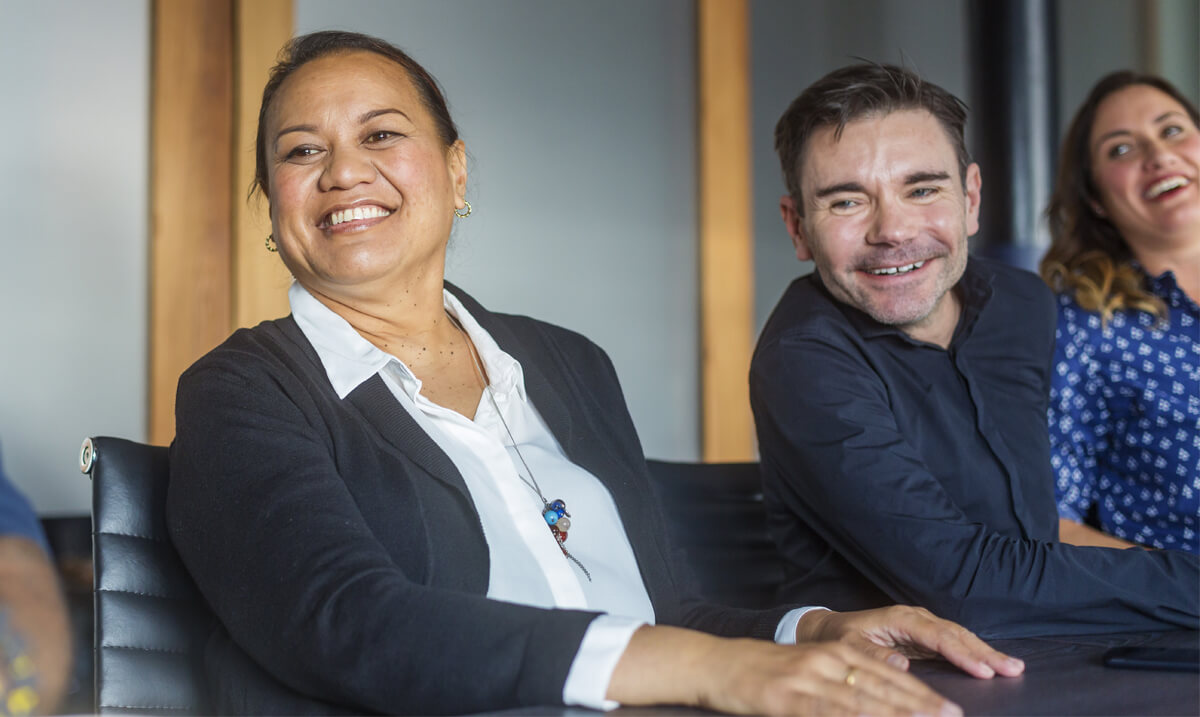
Meeting the needs of customers experiencing domestic violence
Customers experiencing domestic violence are made vulnerable by the controlling and abusive behaviour of their intimate partner or ex-partner, or in some instances, by a family member, or someone else with whom they share a household or a close, personal relationship. Controlling behaviours used by abusive partners almost always include some form of financial control or abuse.
Often the most difficult aspect of escaping an abusive partner is overcoming barriers to financial independence and stability. We have heard countless stories from Shine clients who have struggled to become independent from an abusive partner or spouse, dealing with financial institutions which failed to take their circumstances into consideration, or which responded in a way that exacerbated their situation or put them in greater danger.
Financial institutions can help customers experiencing domestic violence in many ways, for example, by:
- Maintaining their privacy, especially to keep their details private from an abusive (ex) partner or (ex) spouse (NOTE: Under the new Privacy Act, which goes into force December 1st 2020, privacy breaches that are likely to cause serious harm must be reported to the Privacy Commissioner’s office and any affected persons must be notified – or face a fine of up to $10,000. One such data breach would be sharing a customer’s contact details with their abusive ex-partner, who may be a joint account holder. So it is more important than ever to ensure your systems and processes are set up to prevent these kinds of breaches.
- Providing information and assistance for the customer to separate joint funds and accounts from their partner, and move towards having sole control over their own funds and accounts
- Deferring debt or mortgage loan repayments when someone is in difficult financial circumstances as a result of domestic violence
- Having flexible processes for meeting legal requirements around opening new accounts for customers who do not have ID or a permanent address for some period of time due to domestic violence
- Providing information about specialist domestic violence support such as Shine’s Helpline, and information about free budgeting and financial capability advice such as the MoneyTalks helpline
- Screening messages on online payment systems, and blocking customers from using bank apps and online banking if they are used to abuse someone.
Financial institutions and other businesses not only need the right policies and procedures, they also need staff prepared and trained to respond sensitively and safely to customers experiencing domestic violence. This is likely to mean a basic level of training for all customer-facing staff, and a more in-depth training for a smaller group of staff who specialise in working with vulnerable customers.
Because of their situation, customers experiencing domestic violence are likely to be extremely stressed, often fearing for the physical safety of themselves and their children. They may be sleep-deprived, suffer from head injuries, have substance use issues or mental health issue like depression and anxiety, and be in a hypervigilant state. This may impact on their ability to think and communicate clearly, remember information, deal with conflict or frustration, make decisions, etc.
Finally, it is very helpful for businesses to understand that domestic violence is not only a customer issue, it is also an issue that affects their employees. Building an organisational culture of inclusion and diversity, and providing a safe and healthy workplace, both require ensuring that staff affected by domestic violence are safe and supported at work. Having the right policies and procedures, awareness for all staff, and training for key staff can achieve these goals and help build a strong foundation for improving responsiveness to vulnerable customers affected by domestic violence.
We are deeply encouraged that a number of major NZ financial institutions such as banks and insurance companies have been taking concrete steps to improve their responsiveness to people – both employees and customers – who experience domestic violence. See financial institutions that have been awarded the DVFREE Tick here.

How can Shine help?
1. Workplace programme and DVFREE Tick accreditation
We can help your business create a workplace that is safe and supportive for your staff affected by domestic violence with our DVFREE workplace programme and the DVFREE Tick accreditation. Following our recommendations for your workplace response to domestic violence will lay important groundwork for improving your responsiveness to customers affected by domestic violence.
2. Policy consultation
We can provide consultation on policy and other domestic violence related issues. We can help you think through sticky issues such as customer confidentiality, while helping you to ensure that the language you use is clear, respectful, sensitive and non-stigmatising.
3. Training
Shine offers domestic violence training and awareness raising for a range of audiences. Our DVFREE programme in particular has a strong reputation in the business sector for delivering domestic violence training that is relevant, practical and highly engaging. We developed a free workplace online learning module in partnership with Westpac, and we have supported a handful of organisations in developing their own inhouse learning modules. Read about our DVFREE training team here.
4. Helpline
Shine’s Helpline is a service that can provide domestic violence related support, information, advocacy, and referrals to local services. The Helpline is available to provide direct support for people affected by domestic violence, as well as support and guidance for people who want to help someone they know – whether that person is a customer, an employee, a patient, neighbour, family member or friend. You can order free Helpline resources from Shine’s webshop including posters, pamphlets and wallet-size cards.
Our DVFREE Team
Margaret Fitzgibbon
DVFREE Programme Leader
Margaret Fitzgibbon has been a DVFREE Coordinator and Senior Trainer for Shine since June 2019. Margaret has over 20 years of experience working in not-for-profit organisations as a trainer and coach for adult learners. Her various roles have involved the building of capacity of families; programme management and community development, and community consultation and integration. Throughout these roles she has worked directly with families experiencing domestic violence, and has recognized that education is a vital part of a multi-faceted community approach to create violence-free communities. Previously, Margaret worked for HIPPY (Home Interaction Programme for Parents and Youngsters) for 17 years, most recently as a Manager for Great Potentials Foundation/HIPPY NZ, training, supporting and advising 41 HIPPY Site Coordinators throughout New Zealand. During this time she developed a comprehensive training package for HIPPY NZ and completed a Graduate Diploma in Higher Education.
Mira Taitz
SENIOR TRAINER
Mira Taitz has been a Senior Trainer for DVFREE and Shine since August 2021. She is an experienced community worker and adult educator. Prior to joining Shine, she was chairperson of Te Wāhi Wāhine o Tamaki Mākaurau, Auckland Women’s Centre, which has had a close association with Shine for many years. She was Chairperson for four years and previously served on their board for three years. She also worked as a community educator for YouthLaw Aotearoa for four years, where she led a community outreach and training programme on human rights with over 4,000 participants annually. She developed bicultural practice and commitment at Morningside Playcentre, which was commended by ERO. She has worked as a tutor at the Department of Anthropology at the University of Auckland, in social science research to improve people’s experiences in the justice system at universities in Sydney, and as an ESL English teacher. Mira has a Masters in Economic Anthropology.
Dr Rachel Williamson
SENIOR Trainer
Dr Rachel Williamson is a Senior DVFREE Trainer, based in Christchurch/Ōtautahi. In 2005, she volunteered with Shine as an advocate for victims of domestic violence referred by local police and Auckland Hospital. She then became a Shine employee, working with advocates to produce research reports and other resources for Shine clients and external audiences. Since then, she has worked as an English and Media Studies teacher in a number of secondary schools and an external examiner for NCEA. She has also been a tutor, guest-lecturer, and marker at tertiary level. Rachel holds a postgraduate diploma in secondary teaching, a Masters degree in English and Women's Studies, and a PhD in Cultural Studies. She has published her research in academic journals and peer-reviewed book collections, and also presented at international conferences. Her research is interdisciplinary in nature, focusing on the intersections between representation and embodied lived experiences, particularly in relation to women's experiences.
Claire Southward
DVFREE senior trainer
Claire Southward is a DVFREE Senior Trainer based in Wellington since March 2022. She has also worked part time as a Violence Intervention Programme (VIP) Coordinator for the Hutt Valley District Health Board (DHB) since 2017, training and supporting health professionals to recognise and respond to intimate partner violence and child abuse and neglect. Claire is a Registered Social Worker and has worked across a range of acute hospital wards for the last 17 years. During this time, she has supported many women who have experienced violence from a partner and, together with other agencies, enabled them to find out more about their options and plan towards increasing their safety. Claire has a Masters Applied degree in Social Work (2001) and a Postgraduate Certificate in Health Sciences (Violence Prevention, 2020).
Fiona Moore
SENIOR Trainer
Senior Family Violence Educator Fiona Moore is originally from Yorkshire in the Northwest of England. She brings to DVFREE and Shine Respond over 25 years of experience of working in social services, family violence support, education and advocacy for individuals, their families/whānau and their communities.
Fiona’s mahi has encompassed the globe, supporting an in-depth experience of working with diverse cultures and complex needs often in challenging environments. Fiona is passionate about diversity, equity and inclusion. Her approach is holistic and her own practice framework is therapeutic, response based and mana informed.
The last decade has seen Fiona in leadership roles in both Te Tapui Atawhai - Auckland City Mission and Women’s Refuge, where she has led a wide range of initiatives to support best practice including development of organisational responses to family violence and in-service education and development for social service professionals.